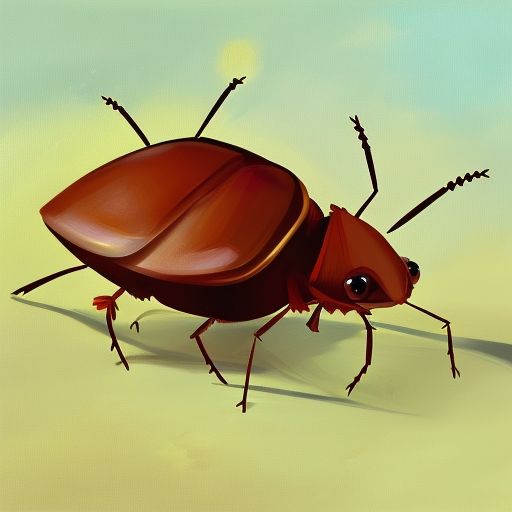How to keep caterpillars off passion vine
You’re tending to your passion vine when you notice a few holes in the leaves. Upon closer inspection, you see that there are small caterpillars munching away on your plant. It’s frustrating, especially since you put so much time and effort into caring for your passion vine. You know that caterpillars can do a lot of damage to the plant if left unchecked, so you want to take action to keep them away. But how to keep caterpillars off passion vine?
First things first, it’s important to identify the type of caterpillar that’s causing the problem. There are many different species of caterpillars that can infest passion vines, and the best method of control will depend on the specific type you’re dealing with. Some common caterpillars that attack passion vines include the passion vine moth, the passion vine hopper, and the passion vine butterfly.
Once you’ve identified the type of caterpillar, you can begin to take steps to control the infestation. Here are a few methods you can try:
Physical removal
One of the simplest and most effective ways to control caterpillars on your passion vine is to simply pick them off the plant and dispose of them. This works best for small infestations, as it can be time-consuming to remove large numbers of caterpillars by hand. To do this, simply grab the caterpillar between your thumb and forefinger and gently pull it off the plant. Make sure to dispose of the caterpillar far away from your passion vine, as it may try to crawl back onto the plant if it’s left nearby.
Insecticides
If physical removal isn’t practical or if the infestation is too large to manage by hand, you may need to use an insecticide to control the caterpillars. There are several different types of insecticides that can be effective against caterpillars, including biological insecticides (such as Bacillus thuringiensis, or Bt) and chemical insecticides.
Biological insecticides are made from naturally occurring bacteria and are generally considered safer and more environmentally friendly than chemical insecticides. They work by disrupting the caterpillar’s digestive system, causing them to stop eating and eventually die.
Chemical insecticides, on the other hand, are synthetic chemicals that are designed to kill insects. They can be effective against caterpillars, but they can also harm beneficial insects and other wildlife, so it’s important to use them carefully and only as a last resort.
If you decide to use an insecticide, be sure to follow the instructions on the label carefully. It’s also a good idea to test a small area of the plant before applying the insecticide to the entire plant, as some plants can be sensitive to certain chemicals.
Plant resistance
One of the best ways to control caterpillars on your passion vine is to choose varieties that are naturally resistant to caterpillar damage. Some varieties of passion vine, such as Passiflora caerulea and Passiflora coccinea, are less prone to caterpillar infestations than others. While these varieties may not be completely immune to caterpillar damage, they are less likely to suffer from severe infestations.
Planting a variety of different plants in your garden can also help to reduce the risk of caterpillar damage. Caterpillars are less likely to infest a garden that has a diverse range of plants, as they will have more options for food and shelter.
Cultural control methods
There are also a few cultural control methods you can use to help keep caterpillars off your passion vine. One such method is to keep the area around the plant clean and free of debris, as this can help to reduce the number of hiding places for caterpillars. You can also try pruning off infested leaves and branches, as this can help to limit the spread of the infestation.
Another cultural control method is to use a sticky barrier around the base of the plant. This can be done by applying a thin layer of a sticky substance, such as Tanglefoot or Vaseline, to a strip of cardboard or plastic and placing it around the base of the plant. The sticky barrier will prevent caterpillars from crawling up the plant and will also help to catch any that fall off the plant while feeding.
Preventive measures
In addition to these control methods, there are a few preventive measures you can take to help keep caterpillars off your passion vine in the first place. One such measure is to provide your plant with proper care, including regular watering and fertilizing, as a healthy plant is less likely to be attractive to caterpillars.
You can also try using floating row covers to protect your plant from caterpillars. These are lightweight, mesh-like covers that can be placed over the plant to prevent caterpillars from accessing it. Just be sure to remove the covers when the plant begins to bloom, as this will allow pollinators to access the flowers.
Finally, consider using natural predators to help control caterpillars on your passion vine. There are several species of beneficial insects that feed on caterpillars, including ladybugs, lacewings, and praying mantises. These insects can help to keep the caterpillar population in check, reducing the need for chemical controls.
Conclusion
Dealing with caterpillars on your passion vine can be frustrating, but with a little effort, you can effectively control the infestation and protect your plant. Whether you choose physical removal, insecticides, plant resistance, cultural control methods, or preventive measures, there are several options available to help keep caterpillars off your passion vine. By taking the time to identify the type of caterpillar you’re dealing with and choosing the right control method for your situation, you can help ensure the health and beauty of your passion vine for years to come.






